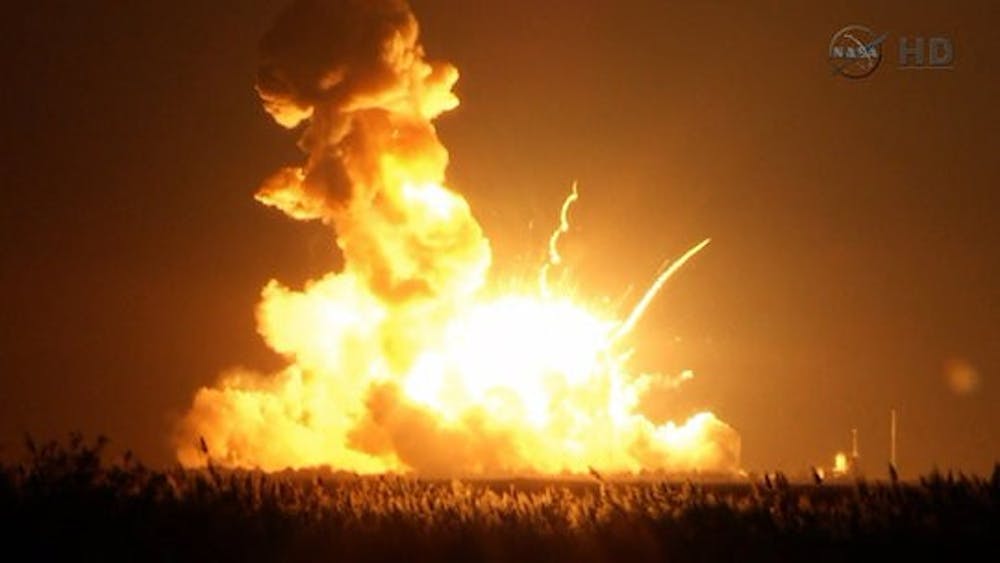A rocket transporting supplies to the International Space Station exploded moments after liftoff from a Virginia launch site Oct. 28.
The unmanned Antares rocket, built by Orbital Sciences Corp., experienced “catastrophic failure,” according to the company. “There was some disassembly of the first stage, it looked like, and then it fell to earth.”
There were no injuries.
According to The New York Times, the rocket was scheduled to deliver a 5,055-pound cargo load of experiments and supplies to astronauts aboard the space station. Tuesday’s launch would have been the third of eight Orbital Sciences cargo missions under a $1.9 billion contract with NASA.
Officials said the destroyed cargo load would not put astronauts aboard the space station in jeopardy.
CNN released an update Friday reporting that launch operators deliberately destroyed the rocket after the initial failure.
"Prior to impacting the ground, the rocket's Flight Termination System was engaged by the designated official in the Wallops Range Control Center," Orbital said.
Mark Kelly, a retired NASA astronaut, said: “[Orbital Sciences] commanded the destruct system to make sure it didn't wind up in a populated area when they knew it wasn't going to make it to orbit.”
The Washington Post wrote that some are concerned that the Soviet-era rockets powering the first stage of the launch contributed to the rocket’s failure. After the Soviet Union abandoned the idea of putting man on the moon, their N1 rocket engines were left to collect dust until they were brought to the U.S. in the 1990s.
Elon Musk, the chief executive of Orbital’s competitor SpaceX, told Wired last year that their use of the Soviet technology is one of the “pretty silly things going on in the market.”
Orbital launches “start with engines that were literally made in the ’60s and, like, packed away in Siberia somewhere,” Musk said.
Orbital Sciences is one of two private companies hired by NASA since its shuttle program was canceled in 2011 – the other is Elon Musk's SpaceX. According to CNN, NASA has relied on the private sector to build every vehicle that has carried American astronauts to space.
Enjoy what you're reading?
Signup for our newsletter
The New York Times reported that just last month NASA awarded new contracts to SpaceX and Boeing to take astronauts to the space station beginning as early as 2017.
Contact reporter Adam Gibson at adam.gibson@richmond.edu
Support independent student media
You can make a tax-deductible donation by clicking the button below, which takes you to our secure PayPal account. The page is set up to receive contributions in whatever amount you designate. We look forward to using the money we raise to further our mission of providing honest and accurate information to students, faculty, staff, alumni and others in the general public.
Donate Now



